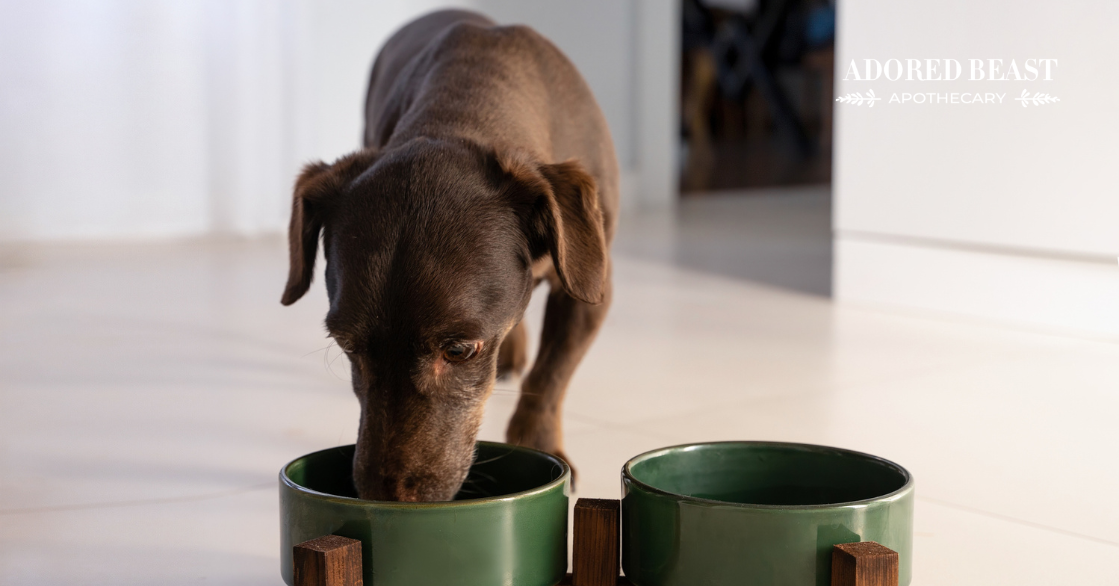Few things in life rival the cuteness factor of a new puppy. Bringing home a sweet little bundle of fluff is so exciting, and although they can be a lot of work, the joy they bring is well worth the extra effort.
With a puppy, though, you want to be well prepared to help ensure you’re giving your new puppy the best start at life, right from the very beginning! There are several essential puppy tips that will help you create a safe space and a welcoming environment within which your precious pup can grow and thrive.
Whether this is your 1st puppy or your 10th, it never hurts to have these tips on hand as a reminder!
New Puppy Tips
It’s our responsibility as pet parents to provide our animals with the very best, from the very beginning.
Getting the House Ready
Time for some puppy proofing! If it’s been a while since you’ve had a puppy in the house, or if you’ve never had one, it can be easy to forget how curious these little creatures can be.
- Make sure that you put away anything you don’t want chewed on accidentally. Replace items with chew toys – puppies love to chew (and chewing is an important activity).
- Make sure that cleaning supplies are stored in high cabinets or secured behind doors with childproof latches. If they’re not pet-friendly, never use them when your puppy is in the room, and make sure you have good ventilation. Better yet – switch to pet-safe cleaners (here are several great recipes).
- Consider a baby gate or two to block off rooms or areas you don’t want your puppy to go.
- Put all medications, vitamins, treats, your food or things normally left out like coffee, etc., safely away. Don’t leave them on counters or in low cupboards that your puppy can get into.
- Find out if any of your houseplants are not pet-friendly, and be sure to move them out of areas of access.
What’s on the Menu?
Food is the building block of health, and feeding your puppy well from the very beginning is essential. Obviously, the options are endless, but try to find the highest-quality food you can afford to feed.
To start, it never hurts to speak to your holistic veterinarian or canine nutritionist about the best diet for a puppy. Puppies have different nutritional requirements compared to older dogs, so you want to be sure you’re giving them exactly what they need.
We believe fresh, whole, species-appropriate food is best, no matter your dog’s age. That means raw meats (and a variety of proteins) – muscle meat, organ meat, and bone, and fruits and vegetables. What is important is that you make adjustments to ensure the diet provides recommended allowances for essential nutrients.
Speaking of bones, they are a great chew toy but never give them unattended and make sure they are raw, never feed cooked bones!!! And never, ever give small bones that they could swallow – believe me, they can swallow really big pieces. Be sure they can not break pieces of the bone off and cut and remove all small pieces of cartilage or tendon they could rip off and swallow.
Additionally, puppies will also need to eat more food, and more frequently, than older dogs. A typical guideline is about 2-3% of your puppy’s adult weight. If you’re not sure what that will be, feed about 10% of their current weight. As for frequency, depending on age, start with 3-5 smaller meals a day and eventually (very slowly) reduce that to 1-3 over time. BUT again, please speak with your trusted holistic veterinarian or canine nutritionist because each breed can be different.
As for what to feed food in, a flat platter works, or shallow bowls are good too. Be sure that bowls are made from pet-safe materials. Avoid plastic, since puppies may chew the bowls, and it can also cause allergies to develop when they are growing – that’s the last thing you want.
Set a Schedule
Many dogs thrive on routine. And having a routine right from the get-go can really help with training and getting your puppy comfortable in their new home. Puppies are much like children and establishing consistency in expected behaviour and a routine for feeding, playtime, training, and potty time will help your puppy feel secure and happy.
The routine can revolve around everything you do – feeding, bedtime, potty breaks, training time, nap time. Everything in a set time helps your puppy learn. Also, make sure other household members are on board as well, and that everyone maintains some consistency.
Exercise… But Not Too Much!
Anyone who has had a puppy, or even just spent a little time with one, knows they get these giant spurts of energy, run around like Tasmanian devils for 15-30 minutes, then flop on the floor and nap. Then, just when you think they’re relaxed, up they get and around they go once more.
Given the opportunity, most puppies will do this for as long as you’ll let them. And sometimes it can be tempting to let them in the hopes that it will tire your puppy out so you can get some relaxation yourself – but you never want to overdo it. Too much exercise when a puppy is very young can put stress on the joints and cause problems later in life.
Regular exercise is important, but work up slow and steady. A good guideline is 5 minutes for every month of age, a few times a day. If your puppy displays any signs of tiredness (ex. sitting down on a walk), it’s time to take a break. But don’t necessarily rely on them for cues – often dogs, at any age, won’t tell us when they’ve had enough, so just use your best judgement. Be sure to use a harness and never any type of collar! Puppies may pull, and you don’t want to put too much pressure on the neck. The thyroid is right there, and you can cause damage to it as well as to the esophagus.
Let’s Get Social!
We all want our dogs to be well-rounded functioning members of society. Just joking – but at the very least, we want them to be able to be out in public without fear or anxiety. Starting from a very young age is the best way to help your dog learn to cope in various social situations.
In the first few months, be sure to expose your puppy to:
- Different smells and sounds
- Different people – both adults and children
- Other dogs/other animals
- A variety of environments
- New textures (ex. different types of flooring)
When introducing your dog to new people, do NOT allow just anyone to come up and pet your puppy! You would not allow that with your child, so take the same approach. Manage each interaction, and if they are afraid you must intervene!
***Always assess the safety of the situation. For example, a puppy training class is probably a better idea that heading to a busy dog park and letting your pup run wild. Saying that, some classes use choke chains (yes shocking and barbaric, but they do!). Avoid these ones like the plague. Also, many will require way too many vaccines. You can also find friends to have play dates with. Try to introduce them to well-behaved, mentally stable, healthy, young adult dogs. Nothing teaches a puppy better than a well-adjusted dog. We would also recommend a positive reinforcement trainer/consultant and get a ton of references.
Supplements
With puppies, you always want to start with foundational health. That begins in the gut – so pre and probiotics are really good and can be started at any age. We recommend species-specific or species-appropriate probiotics from the beginning to really help populate the gut with many diverse strains of probiotics. Our Fido’s Flora and The Wolf are both good options!
Phytoplankton is complete nutrition that absorbs and resonates with the body’s synergistic process. It can also be very beneficial for puppies. It is incredibly high in free-radical fighting antioxidants, as well as omegas, amino acids, and many vitamins and minerals.
Also, if you’ve given your puppy any vaccines, or plan to, Rebalancer can help protect against vaccinosis. It assists in the removal of associated vaccine side effects, but doesn’t remove any of the benefits of vaccines.
Bringing home a new puppy is an exciting time! It can also be stressful in the best way. Prepare your new canine companion for a healthy, happy life right from the very beginning with these puppy tips.












